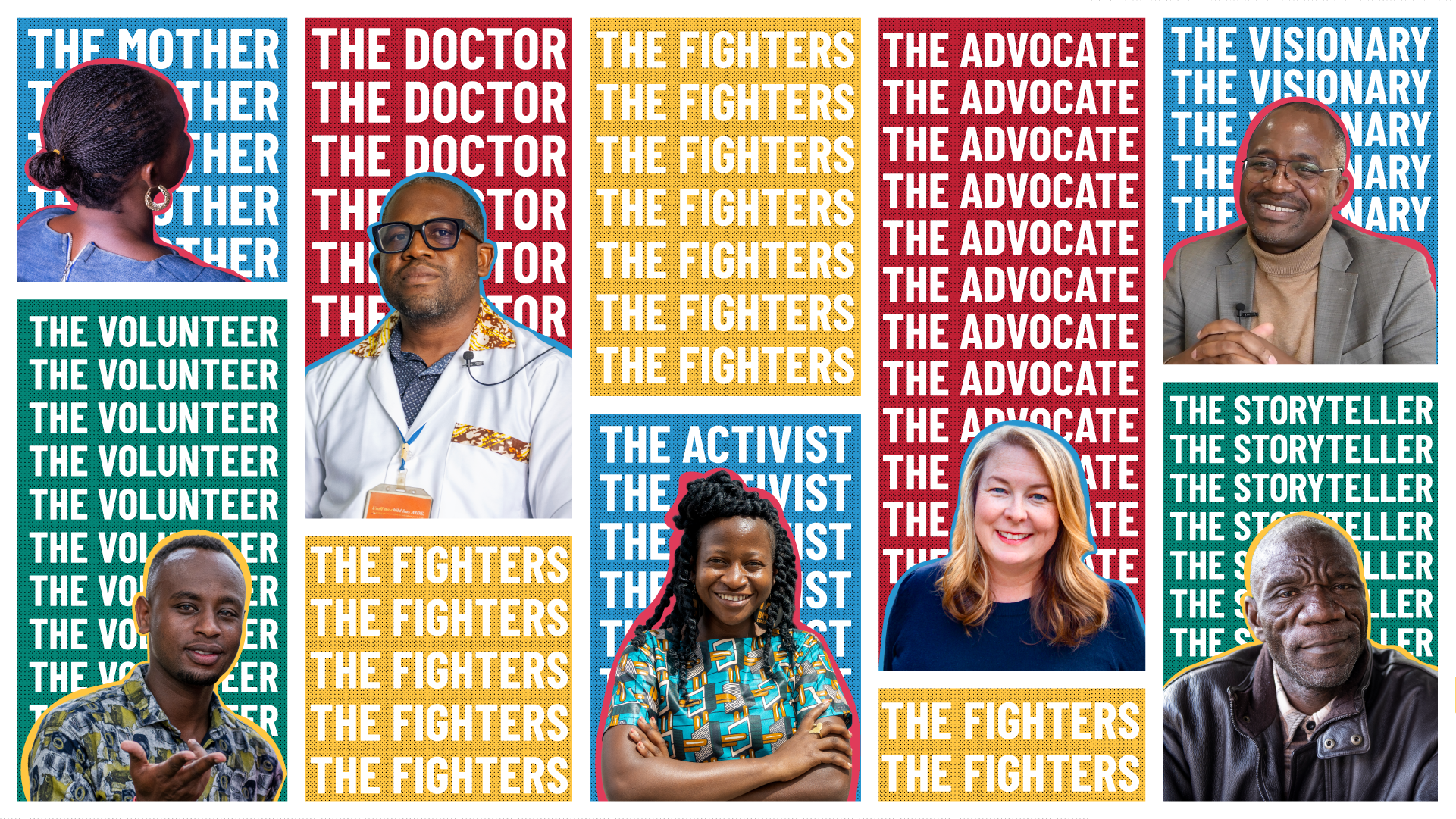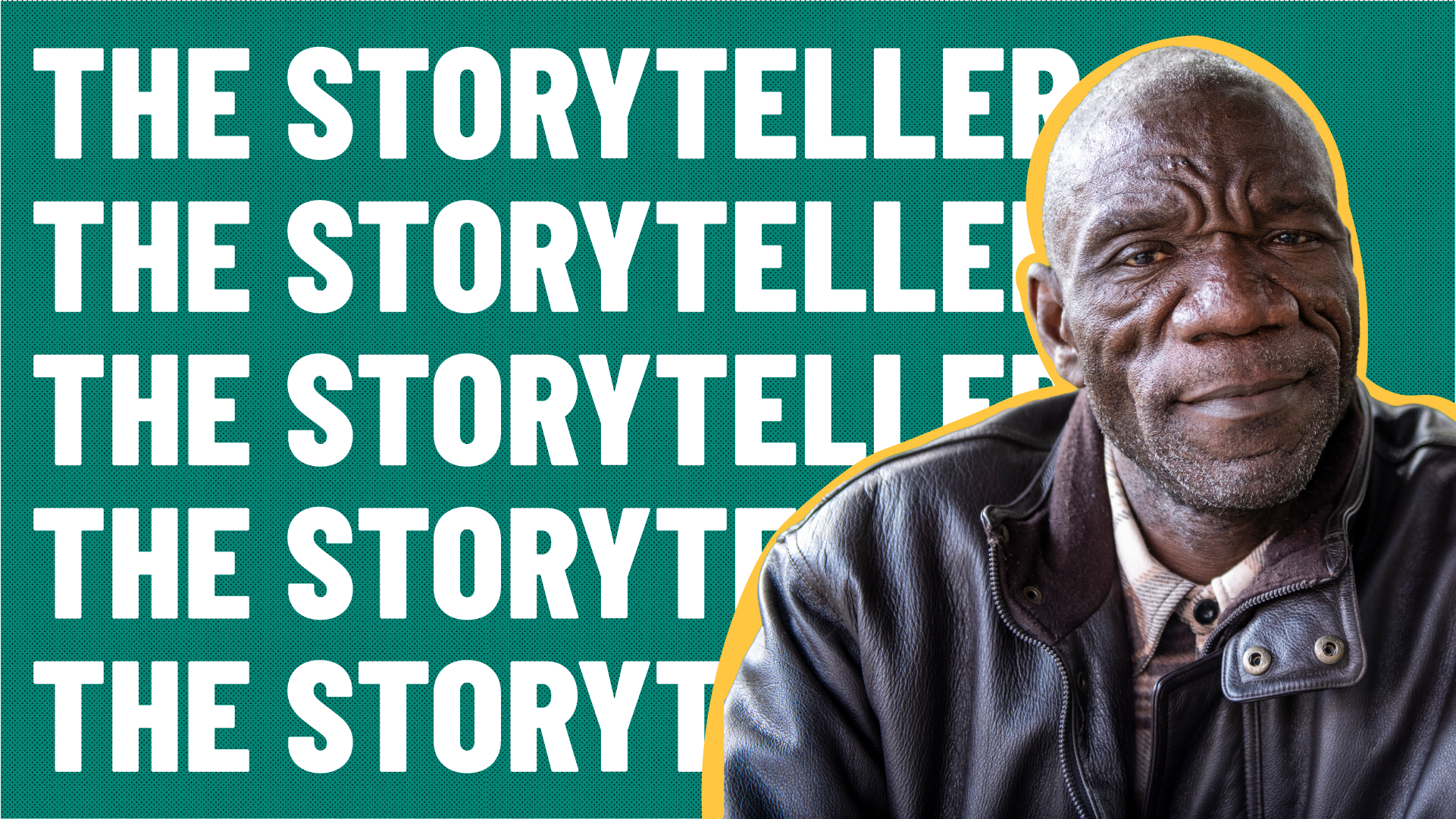Malawi, a small country in southern Africa, was hit hard by HIV. At the height of the epidemic, an estimated 30 percent of women were HIV-positive. Although that number has dropped, it is still high, at 13 percent. In this low-income nation, farming communities tend to follow traditional ways, which can hamper HIV prevention and treatment efforts. In response, community-based organizations, like RISE Malawi, have engaged village chiefs, who are highly effective at motivating their communities. The Elizabeth Glaser Pediatric AIDS Foundation (EGPAF) has provides technical assistance to RISE Malawi through funding from ViiV Healthcare.
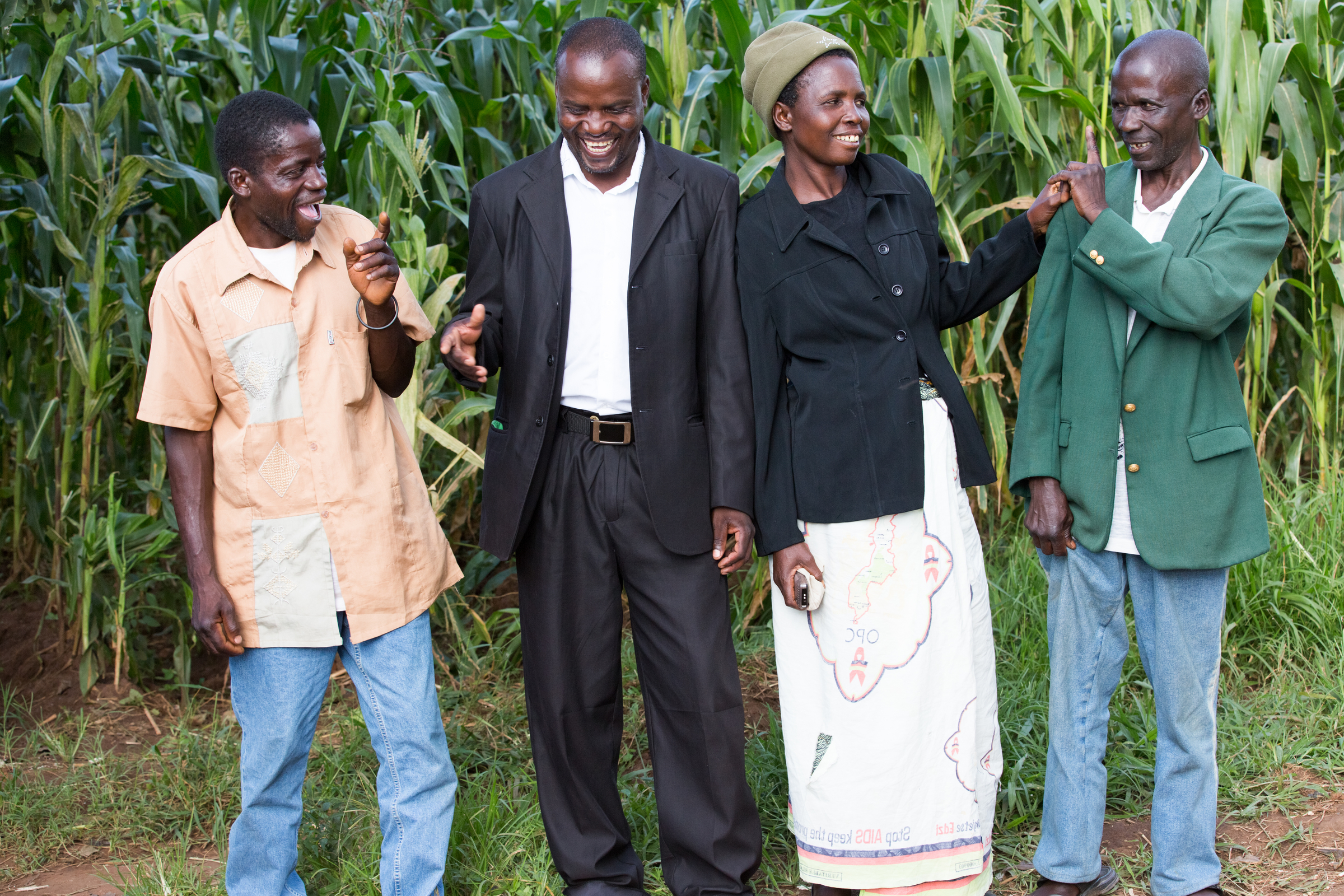
As a group village head, Kaphukila Tholokosi (wearing the green blazer) has seen how his community has changed with the intervention of RISE Malawi. Initially, the seemingly inexorable increase in deaths from AIDS was met with fear and ignorance, resulting in fractured bonds within the community. The chiefs intervened, and with RISE Malawi’s help they enacted bylaws that make it a crime to stigmatize community members who are living with HIV. Offenders, such as the man pictured here attending the village court, are required to pay a chicken to the village headman and a goat to the group village head.
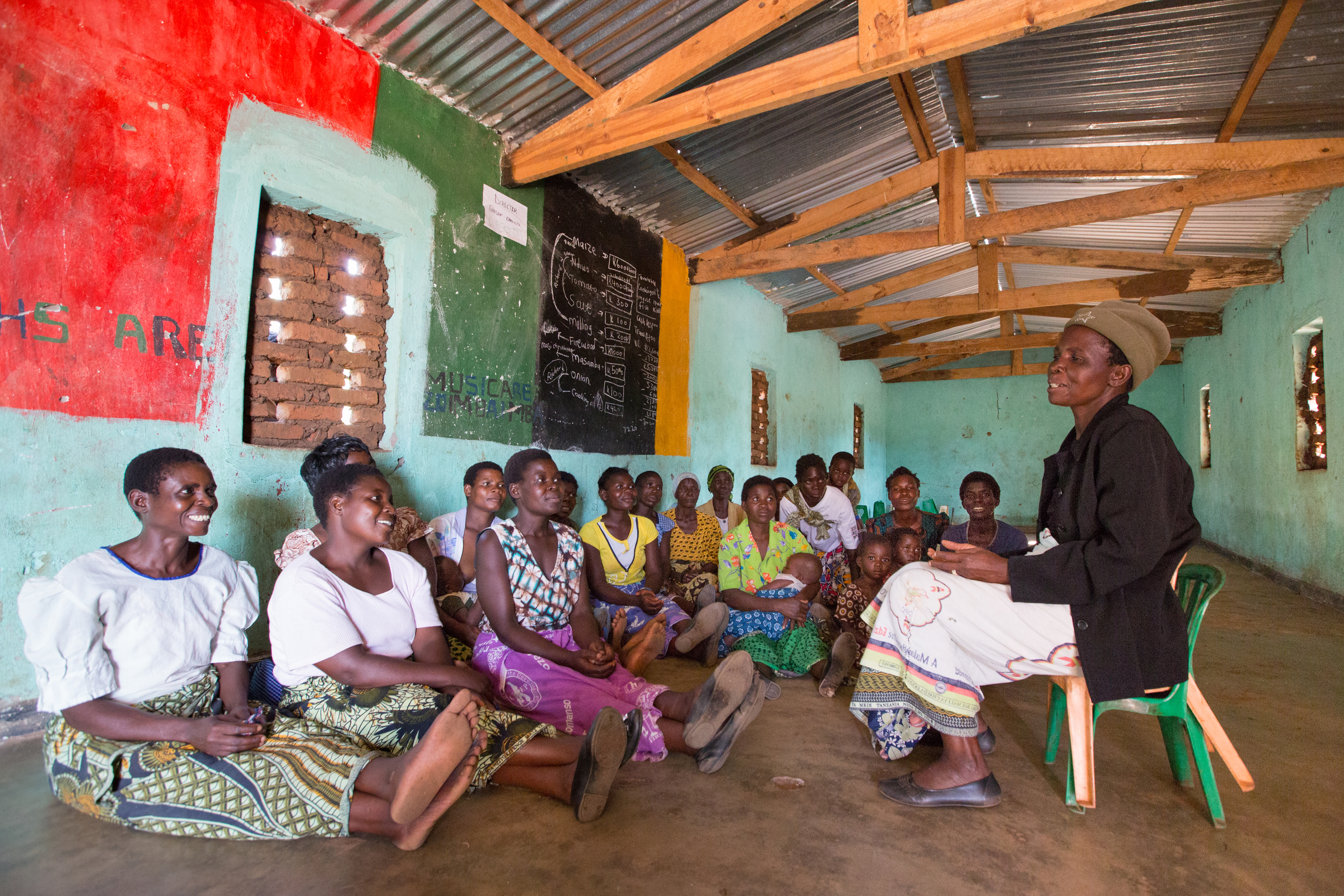
Group Village Head Christina Mapondela has attended various training sessions under RISE Malawi’s auspices, giving her an excellent overview of HIV/AIDS-related matters that she is now charged with passing on to community members, particularly women of childbearing age. Mapondela tells these women to ensure that men are involved with their pregnancies from the start, and that they ought to be committed partners in the HIV testing and counseling (HTC) process. She reminds them to always steer clear of conflict, finding a middle ground wherever possible. Mapondela says that this is a challenging job, because although she is a chief, she’s often not taken sufficiently seriously as a woman—though this is now changing.
RISE Malawi staff often come to the community and work with the chiefs on focusing on the role of men in the process. The stigma attached to HIV/AIDS, coupled with an increasing trend towards absentee fathering, has emphasized the need to engender awareness of what the virus entails and how male involvement can dramatically improve a family’s chances of living healthy and fulfilling lives.
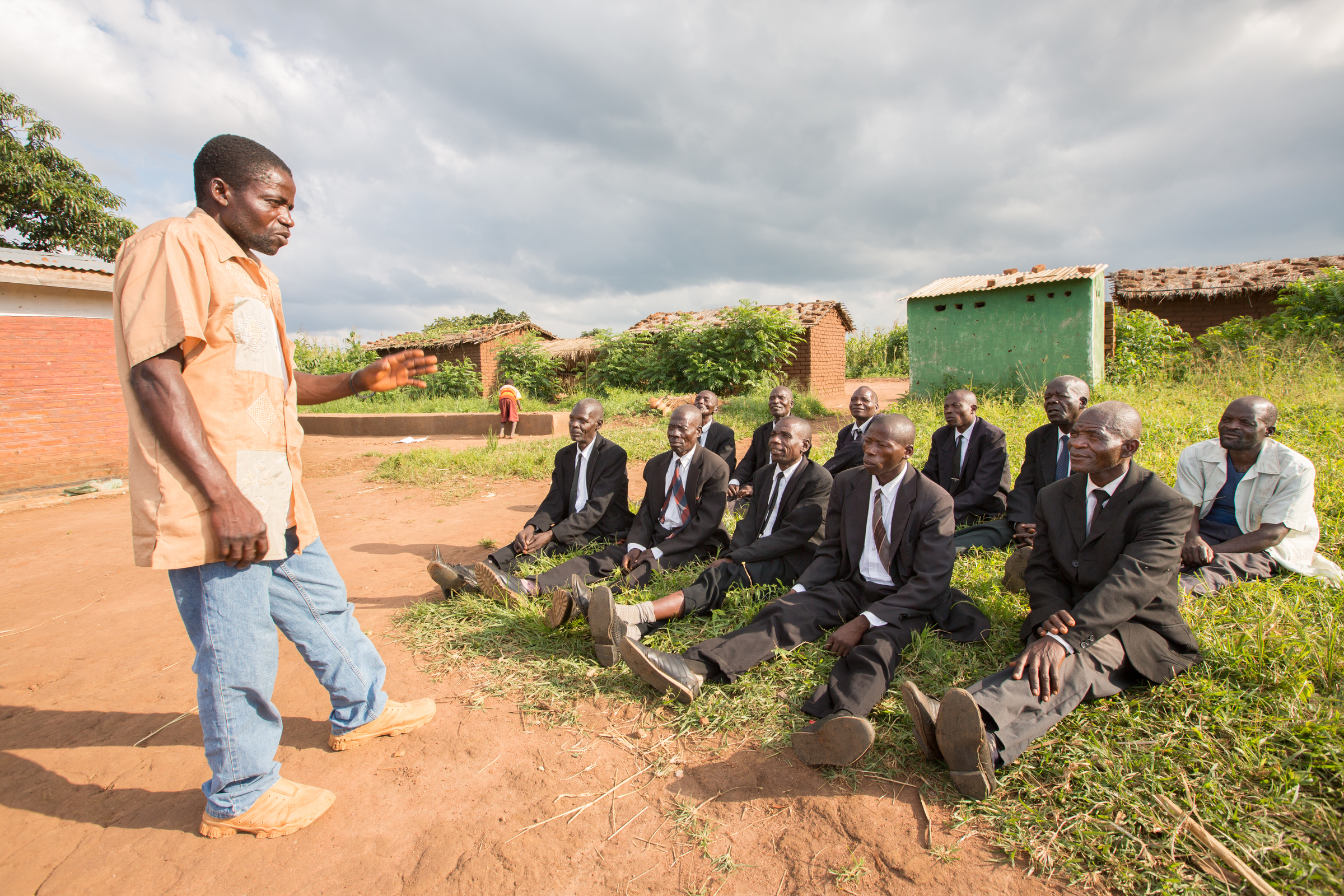
Village Head Master Naliyele speaks of how the RISE helped them to target community ceremonies, such as funerals, to speak to people about things they had never heard of—prevention of mother-to-child transmission (PMTCT), contraceptives, family planning and institutional delivery. In this way, men were encouraged to get involved in HIV testing and counseling and to take an active role in the maternity process.
Chitedzela Manyeteloa (second from left) remembers a time when HIV infection and subsequent death from AIDS was just accepted as one’s fate. With RISE’s intervention at a community level, leading to the holding of regular group meetings, there is increased access to information about the nature of HIV/AIDS. It is no longer shrouded in mystery, and as a result there has been a marked reduction in transmission, stigma, and unplanned pregnancies.




